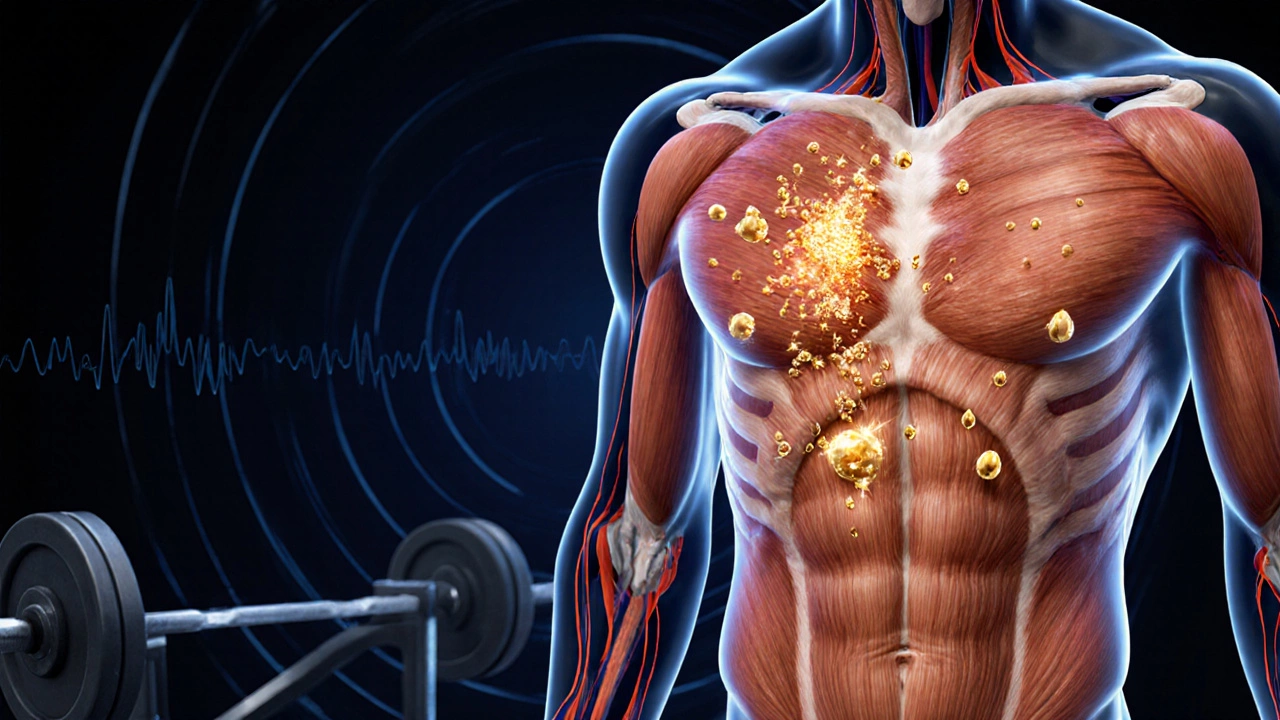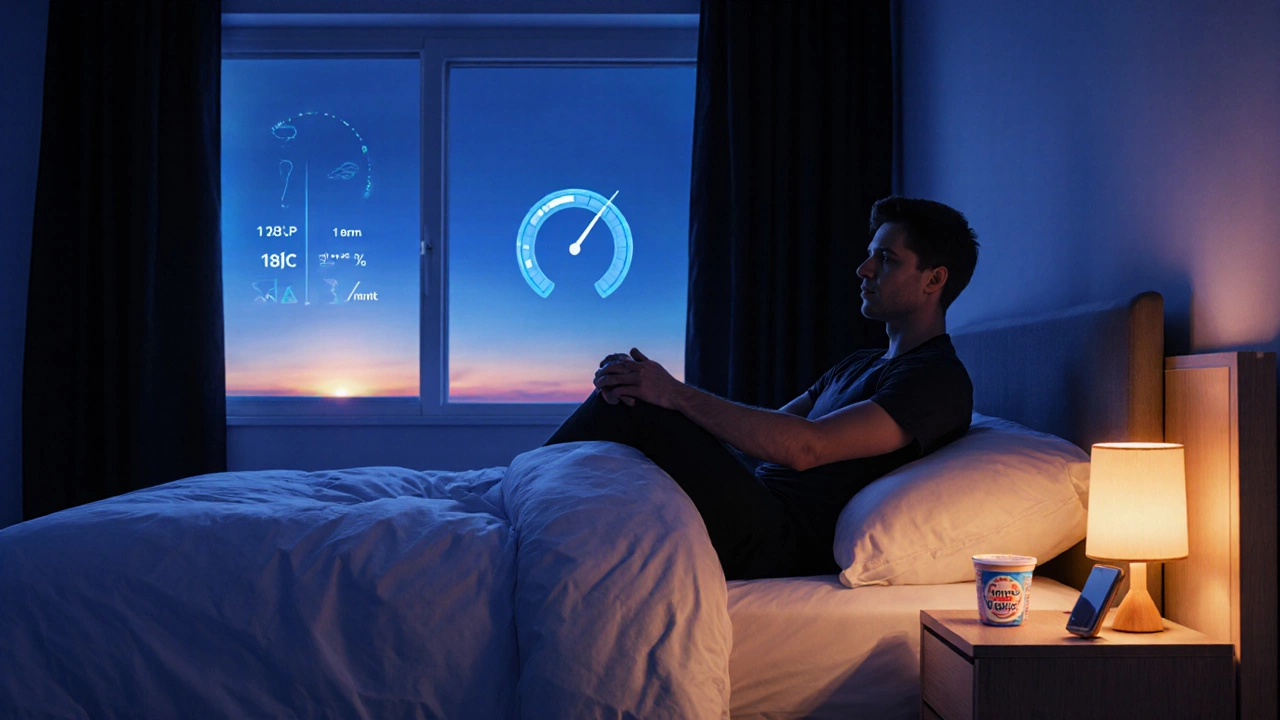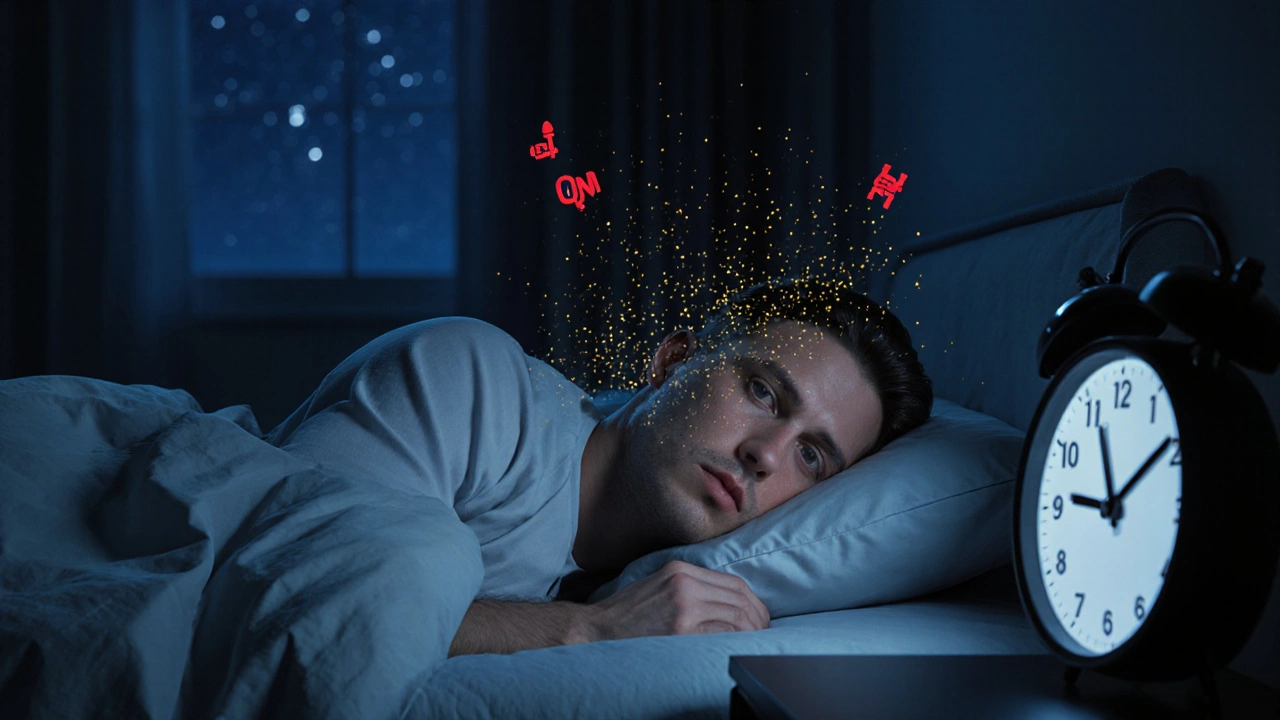Sleep Performance Impact Calculator
How Much Sleep Do You Get?
Enter your typical nightly sleep duration to see its impact on physical performance
Your Sleep Impact Report
Strength & Power
Endurance
Reaction Time
Practical Recommendations
Quick Takeaways
- 7-9 hours of quality sleep boosts strength, endurance and reaction time for most men.
- Deep NREM sleep spikes growth hormone and testosterone, essential for muscle repair.
- REM sleep fine‑tunes brain pathways that control coordination and decision‑making.
- Missing just one night can shave 5-10% off a sprint or lift.
- Consistent bedtime, cool room and limited screens are the fastest ways to protect performance.
Understanding Sleep: Stages and Hormones
When you hear the word Sleep is a recurring state of reduced consciousness that allows the body to recover and the brain to reorganize, most people picture a flat‑lined night of snoring. In reality, sleep is a series of cycles that last roughly 90 minutes each, alternating between NREM sleep (non‑rapid eye movement stages 1‑3, where the body performs deep restoration) and REM sleep (rapid eye movement phase characterized by vivid dreaming and heightened brain activity).
Two hormones dominate the night‑time recovery window:
- Growth hormone (a peptide hormone released in pulses during deep NREM, stimulating protein synthesis and tissue growth) peaks shortly after you fall asleep.
- Testosterone (the primary male sex hormone that drives muscle hypertrophy and bone density) climbs steadily through the night, especially during the first two sleep cycles.
At the same time, the stress hormone Cortisol (a glucocorticoid released by the adrenal glands that can break down muscle if it stays elevated) follows a reverse rhythm-high in the early morning, low at night. Poor sleep flips this pattern, leaving cortisol high when you need recovery.
How Sleep Shapes Strength and Power
Strength training relies on muscle‑protein synthesis, a process that spikes during deep NREM when growth hormone floods the bloodstream. Researchers tracking elite powerlifters found that a night of less than 6 hours cut their bench‑press volume by roughly 8 % compared with a full 8‑hour night. The underlying math is simple: less growth hormone → slower repair → fewer fresh fibers ready for the next session.
Testosterone adds another layer. A study of 60 male college athletes showed a 15 % drop in free testosterone after just two consecutive nights of 5‑hour sleep, and their one‑rep max in squat dropped 4 %.
Bottom line: If your goal is to lift heavier, aim for consistent 7‑9 hours of uninterrupted NREM‑rich sleep.

Endurance, Cardiovascular Fitness, and Sleep
Endurance athletes depend on efficient oxygen delivery and glycogen sparing. During NREM, heart rate and blood pressure fall, allowing the cardiovascular system to “reset.” When you skip that reset, the body stays in a sympathetic‑driven state, increasing heart rate variability and draining glycogen faster.
A 2023 field study on 30 marathon runners revealed that each hour of sleep loss beyond 7 hours added about 2 minutes to race time-a measurable gap at elite levels.
Moreover, REM sleep is tied to the brain’s ability to regulate glucose. Men who get less than 5 hours of REM across a week show higher fasting glucose, which translates to reduced stamina during long rides.
Reaction Time, Coordination, and the Brain
Fast‑paced sports-soccer, basketball, tennis-require split‑second decision making. That skill lives in the brain’s motor cortex, which undergoes nightly consolidation mainly during REM.
One experiment with 24 male rugby players measured sprint‑start reaction time after a night of 4‑hour sleep versus 8‑hour sleep. The short‑sleep group was on average 30 ms slower-enough to miss a tackle.
Beyond raw speed, REM also helps prune unnecessary neural pathways, sharpening the focus needed for precise movements.

What Happens When You Miss Sleep?
Sleep deprivation isn’t a binary switch; it’s a sliding scale. Below are the typical performance drops you’ll see as sleep shrinks:
- 6‑7 hours: Slight reduction in strength (≈2‑3 %). Minor slower recovery.
- 4‑5 hours: Noticeable drop in power (≈5‑8 %). Endurance times creep up by 5‑10 %.
- ≤3 hours: Hormonal chaos-cortisol spikes, testosterone plummets. Reaction time falls 10‑15 % and mental fatigue skyrockets.
Importantly, the body doesn’t fully recover with one “catch‑up” night. It can take 2‑3 nights of adequate sleep to bring hormone levels back to baseline.
Practical Strategies to Maximize Sleep for Performance
- Set a non‑negotiable bedtime. Aim for the same hour each night; the circadian rhythm aligns hormone release.
- Cool your room to 16‑19 °C (60‑66 °F). Lower temperature promotes deeper NREM.
- Limit blue‑light exposure. Shut screens 60 minutes before bed or use amber filters.
- Mind your pre‑sleep nutrition. A small protein snack (e.g., Greek yogurt) supports growth hormone without spiking insulin.
- Stay consistent on off‑days. Even if you’re not training, keep sleep duration steady to maintain hormone rhythms.
For men juggling work, family and training, the easiest win is to treat sleep like a training session-schedule it, track it, and respect it.
Frequently Asked Questions
How many hours of sleep are ideal for strength athletes?
Most research points to 7‑9 hours of total sleep, with at least 1‑2 hours of deep NREM, to maximize growth‑hormone spikes and testosterone recovery.
Can naps replace lost nighttime sleep for performance?
Short naps (20‑30 minutes) can boost alertness but they don’t generate the same hormonal environment as full NREM cycles. Use them only as a supplement, not a substitute.
Does alcohol before bed hurt recovery?
Yes. Alcohol fragments REM and reduces deep‑sleep proportion, lowering both testosterone and growth‑hormone secretion. It also raises cortisol the next morning.
Is there a link between sleep and injury risk?
Sleep‑deprived athletes have slower reaction times and poorer proprioception, which raises the odds of strains and joint injuries by roughly 30 % according to a 2022 meta‑analysis.
How does caffeine affect sleep‑related performance gains?
Caffeine blocks adenosine, delaying sleep onset. If it pushes bedtime back by even 30 minutes, you lose valuable NREM, cutting growth‑hormone release by up to 15 %.






